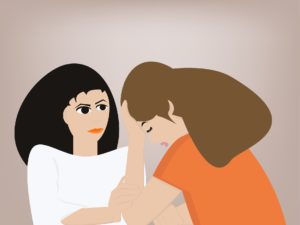WASHINGTON, DC – July 20, 2023 – July 20, 2023 marks the one-year anniversary of the U.S. Department of Health and Human Services’ (HHS) 988 Suicide & Crisis Lifeline. This was formerly called the National Suicide Prevention Lifeline and reachable through a 10-digit number. The 988 Suicide & Crisis Lifeline is a leader of suicide prevention and mental health crisis care through a national network of more than 200 crisis centers staffed by trained counselors. It provides free and confidential emotional support to Americans, 24 hours a day, 7 days a week, 365 days a year. Translation services are provided in more than 240 languages. Many studies have shown, that after speaking with a counselor, people who call the Lifeline feel much better, more hopeful, less suicidal, less depressed and less overwhelmed. Research has showed that the number of Americans with suicide thoughts, depression and anxiety has increased during the coronavirus pandemic.
There have been almost 5 million contacts via calls, texts and chats answered over the past year assisting millions of people in a mental health crisis. These people were looking for help with suicide, mental health and substance use-related crises. The hotline’s efficiency has improved over the year. A shorter easy-to-remember phone number was able to make counseling more accessible and save more lives. The average speed to answer for contacts decreased from 2 minutes 39 seconds to 41 seconds while the volume of text contacts, chats, and calls answered increased by 1135%, 141%, and 46% respectively. There were 2 million more contacts this year than last year prior to introducing the 988 number.
Improving the hotline’s access and its efficiency is in response to reducing the mental health crisis in the United States. One billion additional dollars have been invested in the 988-suicide hotline this past year. It includes funding from President Biden’s American Rescue Plan and Bipartisan Safer Community Act. The lifeline is supported by HHS through the Substance Abuse and Mental Health Services Administration (SAMHSA). These funds have gone to states, territories and tribes to provide more staff, more training, and more resources to meet this growing need.
Dr. Miriam Delphin-Rittmon, the HHS Assistant Secretary of Mental Health and Substance Use and the leader of SAMHSA, said “This means that more people are getting help and they are getting help more quickly, which is crucial for a person in crisis.”
Specialized services have been added to the suicide hotline since its inception last year, including:
- Spanish text and chat services (to already existing call support)
- LGBTQI+
- Youth and young adults
The crisis line links to the Veterans Crisis Line (VCL). Military members, veterans, and their families can reach the VCL by dialing 9-8-8 and pressing option 1. Almost 1 out of 5 contacts were answered by the VCL.
HHS Secretary Xavier Becerra said, “988 is a life-saving program that connects Americans with trained counselors who offer real support in times of crisis.”
If someone is struggling or is in crisis, help is available by phone or text at 9-8-8 or for chat at 988lifeline.org.
Listen to the full report below:
Contact: Dr. Dick Needleman, Health reporter, 103.3 AshevilleFM, [email protected]
More Posts for Show: Asheville FM News Hour
